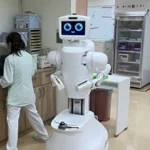Disco, a leading manufacturer of chipmaking equipment, has announced plans to significantly ramp up its production capabilities with a new facility in Kure, Hiroshima Prefecture. This move is aimed at meeting the surging demand in the semiconductor industry, particularly for components essential in processing wafers.
The new plant is set to manufacture cut-off wheels, crucial in dicing, grinding, and polishing processes. This expansion will remarkably increase Disco’s output capacity by 14 times by 2035. The projected investment for this venture is over 40 billion yen ($276 million), with construction expected to commence as early as 2025.
Kazuma Sekiya, CEO of Disco, emphasized the importance of taking a proactive approach to anticipate and meet the expected rise in demand. Disco, which holds a leading global position in machines that perform these critical processing steps, will now enhance its ability to supply the high-speed cut-off wheels made of diamonds. These wheels are integral to processing circuit-formed substrates and require periodic replacement due to wear and tear.
This strategic expansion follows Disco’s acquisition of an adjacent lot next to its existing plant in Kure. The company’s plans include the construction of three facilities by around 2035, with equipment from the current plant being transferred to the new buildings.
The expansion is timely, as the global semiconductor market is poised for significant growth. According to the trade organization SEMI, the market is expected to double to $1 trillion by 2030, driven largely by advancements in artificial intelligence and 5G communications.
For equipment makers like Disco, replacement parts such as cut-off wheels are not only high-margin items but also provide a stable revenue stream. This is particularly notable in Disco’s case, where replacement parts accounted for 20% of its record sales of 284.1 billion yen in the fiscal year ending March 2023. Over the past decade, sales from these parts have tripled.
The semiconductor industry is known for its cyclical nature, with periods of upturns and downturns every three to four years. Even during downturns, when chipmakers may reduce investment, the demand for replacement parts remains consistent, making Disco’s focus on this segment a strategically sound decision.





